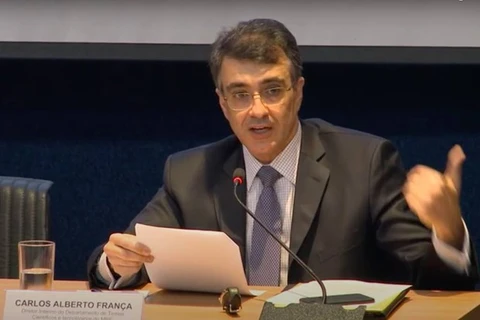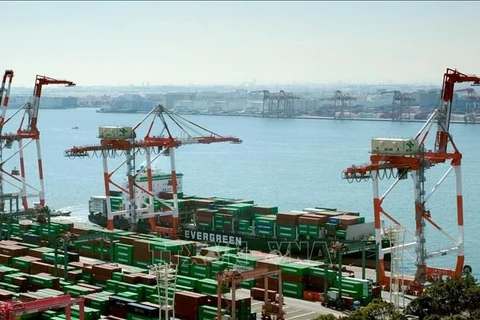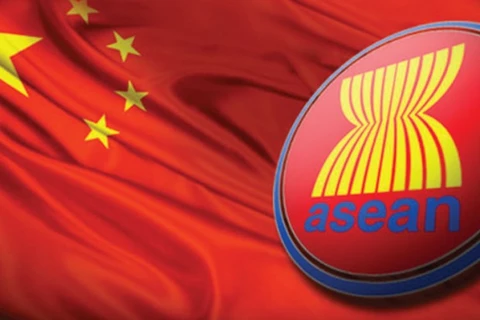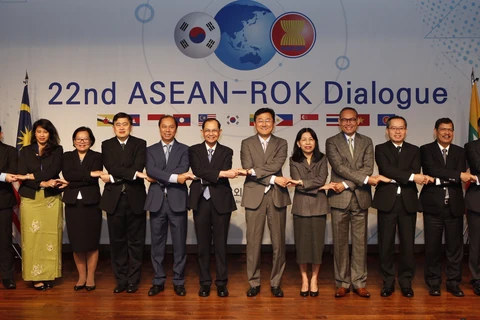Jakarta (VNA) - The ASEAN Secretariat together with the East Asia Business Council (EABC) recently hosted the “Unlocking RCEP for Business: Trade in Goods” webinar.
The session is the first in a series of webinars on Regional Comprehensive Economic Partnership (RCEP) that will be organised throughout the year as part of its public campaign to better inform the business communities on how to utilise the RCEP for their businesses.
In his opening remarks, the Secretary-General of ASEAN Dato Lim Jock Hoi said due to the ongoing COVID-19 pandemic, the value of ASEAN’s external trade declined by 5.5 percent and the region’s economy recorded a contraction of 3.3 percent. However, the region’s economy is projected to bounce back this year.
“ASEAN’s economy is projected to grow by 4 percent this year and 5.2 percent next year. But this positive economic outlook is no reason for complacency as there is a risk of uneven growth which could exacerbate development gap,” he warned, adding that it is necessary to ensure high utilisation rate of the RCEP Agreement among businesses in the region.
The webinar focused on the trade in goods aspect of the RCEP agreement and touched on a number of important issues, such as the schedule of tariff commitments, preferential tariff treatment, non-tariff measures in trade in goods, and trade remedies under RCEP.
The panelists all agreed that public outreach is as important as the negotiation process itself. Without a proper public outreach campaign on how to utilise preferences offered by the RCEP, the agreement would run the risk of having a low utilisation rate and minimum impact on businesses.
Participants also suggested that the ASEAN Secretariat work closely with regional and national business councils to organise events targeting small and medium enterprises to raise their awareness on the benefits of RCEP.
The RCEP agreement is expected to enter into force by early next January.
For the agreement to enter into force, six signatories from the ASEAN members and three from the non-ASEAN countries would need to deposit their Instrument of Ratification to the ASEAN Secretariat./.
The session is the first in a series of webinars on Regional Comprehensive Economic Partnership (RCEP) that will be organised throughout the year as part of its public campaign to better inform the business communities on how to utilise the RCEP for their businesses.
In his opening remarks, the Secretary-General of ASEAN Dato Lim Jock Hoi said due to the ongoing COVID-19 pandemic, the value of ASEAN’s external trade declined by 5.5 percent and the region’s economy recorded a contraction of 3.3 percent. However, the region’s economy is projected to bounce back this year.
“ASEAN’s economy is projected to grow by 4 percent this year and 5.2 percent next year. But this positive economic outlook is no reason for complacency as there is a risk of uneven growth which could exacerbate development gap,” he warned, adding that it is necessary to ensure high utilisation rate of the RCEP Agreement among businesses in the region.
The webinar focused on the trade in goods aspect of the RCEP agreement and touched on a number of important issues, such as the schedule of tariff commitments, preferential tariff treatment, non-tariff measures in trade in goods, and trade remedies under RCEP.
The panelists all agreed that public outreach is as important as the negotiation process itself. Without a proper public outreach campaign on how to utilise preferences offered by the RCEP, the agreement would run the risk of having a low utilisation rate and minimum impact on businesses.
Participants also suggested that the ASEAN Secretariat work closely with regional and national business councils to organise events targeting small and medium enterprises to raise their awareness on the benefits of RCEP.
The RCEP agreement is expected to enter into force by early next January.
For the agreement to enter into force, six signatories from the ASEAN members and three from the non-ASEAN countries would need to deposit their Instrument of Ratification to the ASEAN Secretariat./.
VNA
























